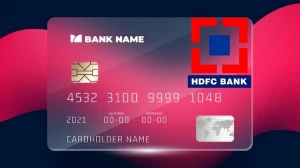
- Home »
- Credit Card »
- Best Travel Credit Cards of November 2023
Best Travel Credit Cards of November 2023
The Best Travel Credit Cards of September 2023 offer a range of rewards and benefits and the cards are Chase Sapphire Preferred® Card, Capital One Venture Rewards Credit Card, Capital One Venture X Rewards Credit Card, Chase Freedom Unlimited®, and more.
by Kowsalya
Updated Nov 06, 2023
On This Page
Best Travel Credit Cards of November 2023
Travel credit cards are designed to accumulate valuable points and miles with every purchase. These cards often extend rewards beyond travel expenses, including everyday spending like dining, groceries, and fuel. These earned rewards can be used to obtain complimentary or reduced-cost flights, and hotel accommodations, or to offset various travel-related costs, maximizing their value.
Here is the list of Best Travel Credit Cards of November 2023:
| Credit Card | Annual Fee | Rewards Rate |
|---|---|---|
| Chase Sapphire Preferred® Card | $95 | 1x-5x Points |
| Capital One Venture Rewards Credit Card | $95 | 2x-5x Miles |
| Capital One Venture X Rewards Credit Card | $395 | 2x-10x Miles |
| The Platinum Card® from American Express | $695 | 1x-5x Points |
| Wells Fargo Autograph℠ Card | $0 | 1x-3x Points |
| Chase Freedom Unlimited® | $0 | 1.5%-5% Cashback |
| American Express® Gold Card | $250 | 1x-4x Points |
| U.S. Bank Altitude® Connect Visa Signature® Card | $0 intro for the first year, then $95 | 1x-5x Points |
| Citi Premier® Card | $95 | 1x-3x Points |
| Chase Sapphire Reserve® | $550 | 1x-10x Points |
| Ink Business Preferred® Credit Card | $95 | 1x-3x Points |
| Bank of America® Travel Rewards credit card | $0 | 1.5x Points |
| Chase Freedom Flex℠ | $0 | 1%-5% Cashback |
| Delta SkyMiles® Gold American Express Card | $0 introductory annual fee for the first year, then $99 | 1x-2x Miles |
| World of Hyatt Credit Card | $95 | 1x-9x Points |
| PenFed Pathfinder® Rewards Visa Signature® Card | $95 | 1.5x-4x Point |
Chase Sapphire Preferred® Card
- Annual Fee: $95
- Rewards Rate: 1x-5x Points
- Intro Offer: 60,000 Points
- Best For: Flexibility, point transfers, and a big sign-up bonus
Capital One Venture Rewards Credit Card
- Annual Fee: $95
- Rewards Rate: 2x-5x Miles
- Intro Offer: 75,000 Miles
- Best For: Flat-rate travel rewards
Capital One Venture X Rewards Credit Card
- Annual Fee: $395
- Rewards Rate: 2x-10x Miles
- Intro Offer: 75,000 Miles
- Best For: Travel portal benefits
The Platinum Card® from American Express
- Annual Fee: $695
- Rewards Rate: 1x-5x Points
- Intro Offer: 80,000 Points
- Best For: Luxury travel perks
Wells Fargo Autograph℠ Card
- Annual Fee: $0
- Rewards Rate: 1x-3x Points
- Intro Offer: 30,000 Points
- Best For: Bonus rewards and no annual fee
Chase Freedom Unlimited®
- Annual Fee: $0
- Rewards Rate: 1.5%-5% Cashback
- Intro Offer: Matched Cash Back
- Best For: Cash back for travel bookings
American Express® Gold Card
- Annual Fee: $250
- Rewards Rate: 1x-4x Points
- Intro Offer: 60,000 Points
- Best For: Big rewards on everyday spending
U.S. Bank Altitude® Connect Visa Signature® Card
- Annual Fee: $0 intro for the first year, then $95
- Rewards Rate: 1x-5x Points
- Intro Offer: 50,000 Points
- Best For: Road trips
Citi Premier® Card
- Annual Fee: $95
- Rewards Rate: 1x-3x Points
- Intro Offer: 60,000 Points
- Best For: Triple points on multiple categories
Chase Sapphire Reserve®
- Annual Fee: $550
- Rewards Rate: 1x-10x Points
- Intro Offer: 60,000 Points
- Best For: Bonus travel rewards and high-end perks
Ink Business Preferred® Credit Card
- Annual Fee: $95
- Rewards Rate: 1x-3x Points
- Intro Offer: 100,000 Points
- Best For: Business travelers, bonus rewards, and a big sign-up offer
Bank of America® Travel Rewards credit card
- Annual Fee: $0
- Rewards Rate: 1.5x Points
- Intro Offer: 25,000 Points
- Best For: Flat-rate rewards, no annual fee, and balance transfers
Chase Freedom Flex℠
- Annual Fee: $0
- Rewards Rate: 1%-5% Cashback
- Intro Offer: $200
- Best For: Cash back for travel bookings
Delta SkyMiles® Gold American Express Card
- Annual Fee: $0 introductory annual fee for the first year, then $99
- Rewards Rate: 1x-2x Miles
- Intro Offer: 40,000 Miles
- Best For: Airline credit card
World of Hyatt Credit Card
- Annual Fee: $95
- Rewards Rate: 1x-9x Points
- Intro Offer: 30,000 Points
- Best For: Hotel credit card
PenFed Pathfinder® Rewards Visa Signature® Card
- Annual Fee: $95
- Rewards Rate: 1.5x-4x Points
- Intro Offer: 50,000 Points
- Best For: Credit union rewards
What is Travel Credit Card?
A travel credit card is a type of credit card designed to provide benefits and rewards specifically for travelers. These cards typically offer various incentives, such as points, miles, or cash back, when you make purchases, especially in travel-related categories like flights, hotels, dining, and rental cars. The accumulated rewards can be redeemed for travel expenses, including flights, hotel stays, car rentals, and more.
Travel credit cards often come with additional travel-related perks and benefits, such as airport lounge access, travel insurance coverage, no foreign transaction fees, and concierge services. Some travel credit cards are co-branded with airlines or hotel chains, offering exclusive benefits and loyalty rewards with those specific brands.
To make the most of a travel credit card, cardholders should strategically use it for eligible purchases, focus on earning sign-up bonuses, and take advantage of the various travel benefits and protections provided. It is essential to manage the card responsibly, pay off balances in full each month, and avoid carrying high-interest debt to maximize the benefits and rewards while maintaining good financial health.
How to Choose a Travel Credit Card?
Choosing a travel credit card can be a strategic decision that enhances your travel experiences and saves you money. To select the right travel credit card for your needs, consider the following factors:
Brand Loyalty
- Identify the airlines and hotels you use most frequently. This will help you narrow down your options to cards that are branded with or closely partnered with those travel providers.
- Look for cards that allow you to transfer rewards points or miles to your preferred airline or hotel loyalty program, as this can offer more flexibility and value.
Rewards
- Evaluate each card's rewards rates and categories. Choose a card that aligns with your regular spending habits.
- Consider whether you prefer a general travel card with consistent rewards on all purchases or cards that offer bonus rewards in specific spending categories.
Redemption Options
- Examine a card's reward redemption options and the value you can get for your rewards.
- Some cards offer the best value when you use rewards to book travel through their specific travel portals, while others provide flexibility by allowing you to redeem points for past travel purchases or transfer them to airline and hotel partners.
Travel Perks
- Assess the travel perks offered by each card. Look for benefits like travel insurance, free checked bags, lounge access, and credits for services like Global Entry or TSA PreCheck.
- Premium travel cards often come with high-value perks that can make luxury travel more accessible.
Travel Protections
- Consider the travel protections provided by the card, such as trip cancellation insurance, rental car coverage, emergency assistance, lost luggage insurance, and concierge services.
- Evaluate which protections are most important to you based on your travel needs.
Annual Fee
- Compare the annual fees of different travel cards and weigh them against the card's rewards, perks, and benefits.
- Determine if the annual fee is justified by the value you receive from the card's features.
Sign-Up Bonus
- Look for cards with attractive sign-up bonuses that can significantly offset travel expenses. Ensure that the spending requirement aligns with your budget.
- Keep in mind that higher annual fee cards typically offer larger sign-up bonuses.
Travel Rewards vs. Cash Back
- Decide whether travel rewards or cash-back rewards are more suitable for your spending habits and travel frequency.
- Travel credit cards are ideal for frequent travelers who prioritize higher reward rates and travel perks. Cash-back cards are better for those who don't travel often but still want to earn rewards.
Foreign Transaction Fees and International Acceptance
- If you travel internationally, check if the card charges foreign transaction fees.
- Verify the card's acceptance abroad, as some cards may not be as widely accepted as others. Visa and Mastercard are often more universally accepted.
Discover MarketsHost, your source for practical financial advice and business tips.
How to Compare Travel Credit Cards?
Comparing travel credit cards can be overwhelming due to the variety of features and benefits they offer. To find the best card for your needs and preferences, follow these steps:
Assess Your Travel Habits: Consider your travel goals and habits. Determine if you frequently travel internationally or domestically, which airlines or hotels you prefer, and your typical travel expenses. Knowing your preferences will help narrow down the options.
Evaluate Annual Fees: Many travel credit cards come with annual fees, ranging from $90 to over $450 for premium cards. Assess the value of the rewards and perks offered to ensure they outweigh the annual fee. If you prefer no annual fee, look for no-fee travel card options, keeping in mind that the rewards and benefits might be less generous.
Compare Rewards Rates: Examine the rewards rates in terms of the "earn rate" and "burn rate." The earn rate is how many points or miles you earn per dollar spent, while the burn rate is the value you get when redeeming them. Look for a card that aligns with your spending patterns and offers competitive reward rates in relevant categories.
Consider Sign-Up Bonuses: Check the sign-up bonuses offered by different cards, but also evaluate the spending requirements to unlock these bonuses. Avoid overspending just to earn a bonus, as interest charges could negate the rewards gained.
Foreign Transaction Fees: A good travel card should not charge foreign transaction fees, especially if you travel abroad frequently. These fees can erode the value of rewards earned on international purchases.
Verify International Acceptance: Confirm the card's international acceptance, as some networks may have limited coverage in certain destinations. Visa and Mastercard are widely accepted, while American Express and Discover might have more limited acceptance in some countries.
Explore Travel Protections: Assess the travel protections offered by each card, such as rental car insurance, trip cancellation coverage, and lost baggage protection. Choose a card that aligns with your specific needs for added peace of mind during your travels.
Evaluate Perks: Compare the perks provided by different cards, especially those associated with the annual fee. Premium cards tend to offer more high-value perks, which can justify the annual fee if you utilize them regularly.
Read Reviews and Research: Read reviews and conduct thorough research on each card. Look for feedback from current cardholders to understand their experiences and satisfaction with the card's features and customer service.
Choose Wisely: After considering all aspects, choose the travel credit card that best suits your travel habits, spending patterns, and overall preferences. Remember that no card will have everything you want, so focus on finding the card that delivers the most value based on your individual needs.
What Are the Pros and Cons of Travel Cards?
Pros of Travel Card
- Many travel credit cards offer generous sign-up bonuses, often worth $500 or more, giving you a head-start on your next travel adventure.
- Travel cards come with various perks, such as free checked bags, airport lounge access, and primary rental car insurance, making travel less expensive and more enjoyable.
- Earn rewards on everyday purchases, bringing you closer to your next trip with every dollar spent.
- Good travel cards do not charge foreign transaction fees, saving you money when using your card abroad.
- When you use a travel card for travel purchases, you can earn additional points or miles on top of loyalty rewards offered by airlines or hotels.
- Maximize the value of your rewards through strategic redemption, booking travel, transferring points, or choosing the right flights or accommodations.
Cons of Travel Card
- Many top travel cards come with annual fees, which might not be ideal if you're against paying fees or don't use the card's perks frequently.
- Some sign-up bonuses require significant spending, and if you can't meet these requirements without incurring debt, it may not be worthwhile.
- For infrequent travelers, cash-back cards with no annual fees might offer more total rewards and flexibility.
- Cash-back credit cards provide simpler and more flexible redemption options, allowing you to use your rewards on anything you desire.
- If you carry a balance regularly, travel and rewards cards with higher interest rates may not be the best choice as interest costs can outweigh the benefits of rewards.
How to Use a Travel Credit Card?
Using travel credit cards effectively involves several key steps to maximize their benefits and rewards. Here's a guide on how to make the most of your travel credit card:
1. Understand Your Card's Features: Familiarize yourself with the card's rewards program, perks, and benefits. Know the earn rate, redemption options, annual fee, foreign transaction fees (if any), and any travel-related protections it offers.
2. Focus on Sign-Up Bonus: Take advantage of the sign-up bonus by meeting the spending requirement within the specified timeframe. This can be a significant boost to your rewards balance.
3. Use the Right Card for Purchases: Choose the appropriate travel card for specific spending categories. Use cards that offer bonus rewards in areas such as dining, travel, or gas for respective purchases to earn more rewards.
4. Pay Off Balances in Full: To avoid interest charges, aim to pay off your credit card balance in full each month. Carrying a balance can negate the value of rewards earned.
5. Redeem Wisely: Consider strategic redemption options. Utilize your rewards for travel expenses, where they often provide better value. Research transfer partners and find the best redemption opportunities.
6. Book Travel Through Card Portal: Some travel cards offer their booking portals with additional benefits, such as increased rewards or exclusive deals. Check if your card has such a portal and use it for travel bookings.
7. Leverage Travel Protections: Take advantage of the card's travel-related protections, such as rental car insurance, trip cancellation coverage, and lost baggage protection.
8. Check for Partner Benefits: Co-branded travel cards may provide additional perks and benefits when you use them with partner airlines or hotels. Look for these partner benefits to enhance your travel experience.
9. Avoid Cash Advances: Avoid using your travel credit card for cash advances, as they often come with high fees and interest rates.
10. Monitor Your Account: Regularly review your credit card statements and account activity to detect any unauthorized charges or potential issues promptly.
11. Consider Companion Cards: Some card issuers offer companion cards that allow you to pool rewards or benefits with a spouse or family member. Consider companion cards to optimize rewards.
12. Stay Informed: Keep yourself updated on any changes to your card's terms, rewards program, or perks. Subscribe to alerts from the card issuer to stay informed.
Who Should Get a Travel Credit Card?
Investing in a travel credit card often proves to be a savvy financial move, especially if you're keen on reducing the expenses of your upcoming journeys. These cards offer a multitude of benefits, such as accumulating airline miles, amassing reward points for complimentary hotel stays, or securing discounted travel arrangements through your card provider. These advantages collectively contribute to substantial savings on your travel expenditures.
The suitability of a travel credit card largely hinges on your individual travel patterns and financial situation. Fortunately, there's a diverse array of options available to cater to various travel styles and budgets.
Whether you're a frequent flyer, an occasional vacationer, or somewhere in between, there's a travel credit card tailored to meet your specific needs. These cards offer unique perks, rewards, and features that align with your travel preferences, allowing you to enjoy your journeys while keeping your budget intact.
Best Travel Credit Cards of November 2023-FAQs
1. What is a Travel Credit Card?
A travel credit card is a type of credit card designed to provide benefits and rewards specifically for travelers.
2. How do I choose the best travel credit card for me?
To choose the best travel credit card, consider your travel habits, spending patterns, and desired benefits.
3. Can I use travel rewards for non-travel expenses?
In most cases, travel rewards earned on travel credit cards are specifically designed for travel-related expenses.
4. What are co-branded travel credit cards?
Co-branded travel credit cards are cards that are jointly issued by a credit card company and a specific airline, hotel chain, or travel provider.
5. Do travel credit cards charge foreign transaction fees?
Many travel credit cards are designed to be international-friendly and do not charge foreign transaction fees.




